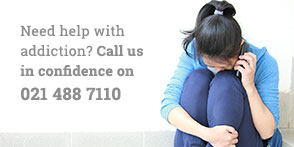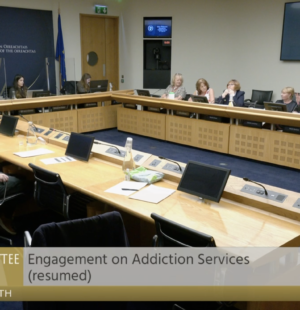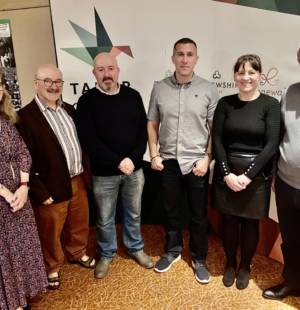The impact of addiction on children
The impact of addiction on children
Children living with an addicted parent may see things that traumatise them, or that are hard to understand. They may feel unloved, hurt and frightened.
Traumatic events, neglect and hurt feelings can impact them emotionally, developmentally and in other ways that last well into adulthood.
Neglect and abuse
There are so many ways in which a parent’s addiction affects children in the home. The most prevalent is neglect. When a parent is focused on feeding their addiction, he or she has little time to spend on children. When a parent is drunk or high, they don’t have the ability to focus on children, or care for them properly.
In addition to neglect, many parents abusing drugs or alcohol may also abuse their children. To many children live in fear of a parent being high or drunk and becoming angry and aggressive.
Ripple effect
Neglect, abuse and other kinds of trauma – such as witnessing a parent in a high or drunken state – cause other effects, which ripple outward into a child’s later life.
Addiction in the home can ultimately lead to a child doing poorly in school, having no understanding of how to relate to other children and even developing post-traumatic stress disorder. They often ‘grow up’ too fast and don’t get to enjoy their childhood.
As adults, the children of addicts carry these issues with them. They often end up in unsatisfactory or even abusive relationships, and they may even become substance abusers themselves. When children of addicts grow up to become addicts themselves, they keep a dangerous and hopeless cycle going. It’s up to everyone to help children of addicts who have been so badly affected by their parents’ illnesses.
Not their fault
Children living in homes where there is parental substance abuse can find life difficult, unpredictable and confusing. Sometimes they even believe the alcohol, substance abuse, gambling or eating disorder is their fault.
Dealing with the chaos and unpredictability of their home life, children receive inconsistent messages. They can feel guilt and shame trying to keep the family ‘secret’. Children often they feel abandoned due to the emotional unavailability of their parents.
What do you tell the children?
If the family breaks up because of addiction, some children become withdrawn and shy; while others can become explosive and violent. They often develop issues with self-esteem, attachment, autonomy and trust.
What do you tell children when one or both of their parents are addicts? How do you explain the chaos? First and foremost, because trust is always an issue, you tell them the truth. They need to hear it.
Addiction is a disease
Children need to know that their parents are not ‘bad’ people, they are sick people who have a disease called addiction. When they are drunk or high, sometimes parents can do things that are mean, or things that don’t make sense.
Children must understand that they are not the reason a parent drinks too much, gambles, or abuses drugs. They did not cause the addiction and they cannot stop it.
You are not alone
Children need to realise that their situation is not unique, and they are not alone. They need to know that even in their own school, there are other children in the same situation.
It’s OK to talk
Children in homes with substance abuse need to know that it’s OK to talk about the problem, without having to feel scared, ashamed or embarrassed. They do not have to lie, cover up and keep secrets. They should be encouraged to find someone that they trust – a teacher, a counsellor, a relative, a friend’s parent, or members of a support group – and be honest about what’s going on at home.
The Seven Cs
Children dealing with family addiction might benefit from knowing the following ‘7 Cs of Addiction’:
I didn’t Cause it.
I can’t Cure it.
I can’t Control it.
I can Care for myself.
By Communicating my feelings.
Making healthy Choices.
By Celebrating myself.
Children from homes where there is parental addiction are often scared, lonely and feel isolated from society. Whether you deliver the message perfectly or not, giving them someone with whom they can talk is an important step in their recovery.
If you or a loved one are suffering from an addiction, get help today. We can help you recover in a healthy, friendly environment and beat your addiction. Don’t hesitate to contact one of our counsellors today for information at +353 (21) 488 7110 or email us at Email Us We can help you.
Recent Posts
- Statement from Colette Kelleher, CEO Tabor Group
- The Influence of Alcohol on Women in the Workplace
- How do I know if my loved one has a drinking problem?
- Understanding the Impact of Alcohol on Our Bodies and Well-Being
- Men and the Stigma of Addiction
Categories
Archives
- January 2024
- December 2023
- August 2023
- July 2023
- May 2023
- April 2023
- March 2023
- January 2023
- October 2022
- September 2022
- August 2022
- July 2022
- June 2022
- May 2022
- April 2022
- March 2022
- February 2022
- January 2022
- December 2021
- November 2021
- October 2021
- September 2021
- August 2021
- July 2021
- June 2021
- May 2021
- April 2021
- March 2021
- February 2021
- January 2021
- December 2020
- November 2020
- October 2020
- September 2020
- August 2020
- July 2020
- June 2020
- May 2020
- April 2020
- March 2020
- February 2020
- January 2020
- December 2019
- November 2019
- October 2019
- September 2019
- August 2019
- July 2019
- June 2019
- May 2019
- April 2019
- March 2019
- February 2019
- January 2019
- December 2018
- November 2018
- October 2018
- September 2018
- August 2018
- July 2018
- June 2018
- May 2018
- April 2018
- March 2018
- February 2018
- January 2018
- December 2017
- November 2017
- October 2017
- September 2017
- August 2017
- July 2017
- June 2017
- May 2017
- April 2017
- March 2017
- February 2017
- January 2017
- December 2016
- November 2016
- October 2016
- September 2016
- August 2016
- July 2016
- April 2016
- March 2016
- December 2015
- March 2015












